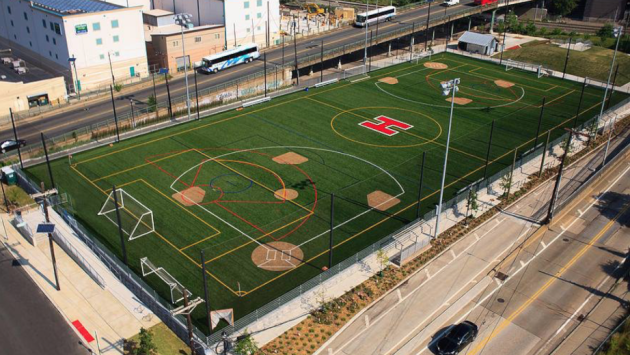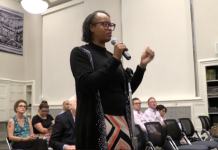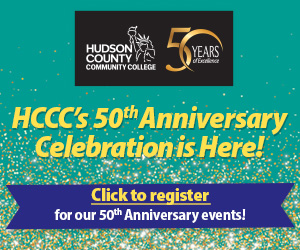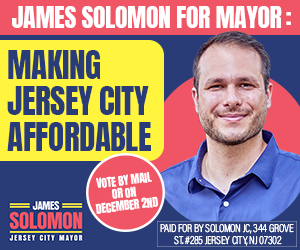A small section of Hoboken’s 1600 Park will be temporarily closeed for construction activity as part of the Hudson Tunnel Project, according to a presentation made to the city council last week.

By Joe Murray/Hudson County View
The Hudson Tunnel Project, which includes the construction of new passenger rail tunnels under the Hudson River and the rehabilitation of existing tunnels, will temporarily impact a portion of the park starting in mid-2026.
The affected area, totaling approximately 2,500 square feet — or 2.5 percent of the park —lies within the Hudson County-owned right-of-way.
“This is the most heavily trafficked rail corridor in the country,” said George Paschalis, the community relations manager for the project, told the city council at last week’s meeting.
“It relies on over a century-old, one-track-in, one-track-out tunnel. Construction is well underway in both states and has already created more than 20,000 jobs.”
Jake Wade, a senior environmental planner, said the temporary occupancy in Hoboken is expected to last approximately 14 months, from mid-2026 to mid-2027.
“Approximately 2,500 square feet of the park would be temporarily occupied by construction activities,” Wade told the council.
5th Ward Councilman Phil Cohen asked about the impact on trees in the work zone, to which project officials confirmed that one of the three trees in the area will need to be removed, while the other two will be protected.
“We are working with the city to coordinate that removal and whatever mitigation might be required,” replied Paschalis, adding that a replacement tree will be planted when work concludes in 2027.
David Smith, a senior tunnel engineer, said Willow Avenue will remain open throughout construction.
“There may be short-term, intermittent closures during off-peak and weekend periods,” he said, but noted these would be limited to “not more than 10.”
He also confirmed that public amenities such as bathrooms and other park features would remain open and accessible.
3rd Ward Councilman Michael Russo asked whether construction would impact the nearby light rail system.
Smith responded, “No impacts to the light rail system are anticipated” for the underpinning work under Willow Avenue, though “there may be some limited outages” during jet grouting activities when fences are installed and work is conducted closest to the tracks.
Furthermore, 2nd Ward Councilwoman Tiffanie Fisher urged officials to minimize disruptions.
“You should procure your contractor and say any disruptions to the light rail have to happen overnight,” she said.
She also raised concerns about vibration damage to older structures, referencing the nearby Hudson Tea building as “a hundred plus year old solid concrete buildings.”
In response, Paschalis said, “Seismographs, which are vibration monitors, will be installed on sensitive, potentially sensitive buildings.”
Regarding the impact on the park, Wade explained it is considered “de minimis” under Section 4F, meaning it “does not affect the features, attributes or activities that qualify the park for protection.”
Paschalis later confirmed the criteria with Wade during the presentation.
Additionally, public comments on the proposed construction impacts will be accepted through July 7th.
For more information or to submit feedback, residents can visit click here.









